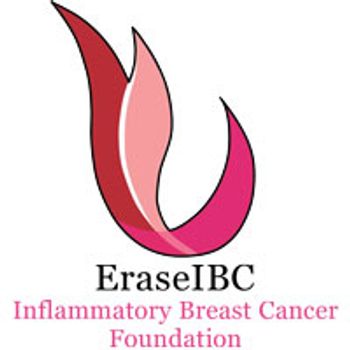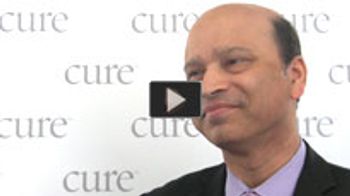
Sue Friedman, Executive Director, FORCE (Facing Our Risk of Cancer Empowered), discusses the ABOUT Network and the importance of informed decision-making.

Sue Friedman, Executive Director, FORCE (Facing Our Risk of Cancer Empowered), discusses the ABOUT Network and the importance of informed decision-making.

Advances in molecular profiling technologies have made it easier to understand the molecular characteristics and clinical behavior of breast cancer.

Melanie A. Nix, co-founder of the Breast Cancer Comfort Site, discusses the various stages of advocacy.

A cancer diagnosis brings with it a world of fears, but living with advanced/terminal cancer puts the other fears into perspective.

Having been a 12-year cancer survivor, metastatic since 2006, I've gained a lot of experience with what long-term palliative care looks and feels like.

Don't go to the funeral until the day of the funeral.

We all want our doctors to be experts in treating our diseases, but what else do they need as they lead us through CancerLand? I wish my doctor knew ...

A wide-angle view of life with cancer.

A cancer survivor discusses a problem, even with good intentions, of the public's lack of cancer education.

Moderate consumption of soy-based foods may lower the risk of breast cancer or recurrence.

Sharing your pain is scary, but leaning in to therapy was the best thing I did to heal emotionally from cancer.

HOPE IS HARD TO FIND IN A CANCER WARD, especially when the news is stage 4 metastatic breast cancer to the liver.

MY FAVORITE NURSE, Susanne, is a model in courage and persistence.

MY WIFE passed away on Feb. 2, 2014, from a six-year battle with cancer. It is my honor to nominate one angel in particular who, in the end, became much more than a nurse to my wife.

Get active in cancer advocacy, fight for increased medical research funding, and we won't need cancer awareness ribbons.

I am a 13-year breast cancer survivor who has had the honor of observing and being cared for by the unsung hero and angel on earth, Kathy Ammirata.

I've always heard of breast cancer survivors, but I never imagined I would become one.

It's not every day that one receives a cancer diagnosis.

Cindi Cantril, RN, OCN, MPH, remembers only the eyes of her patients.

Debu Tripathy, editor-in-chief of CURE and chair of the Department of Breast Medical Oncology at The University of Texas MD Anderson Cancer Center, discusses adding the targeted drug Ibrance to the hormonal drug Faslodex.

Some days it's just a day to cry. But that's OK.

Has cancer changed your perspective on life? What do you value most? What do you most desire?

It is my five-year breast cancer anniversary and I will celebrate because I am here.

Data from a new report that shows compelling information on physicians who use Twitter, types of cancer, and ways to assess integrity.

By adding the targeted drug Ibrance to the hormonal drug Faslodex, women with previously treated hormone receptor (HR)-positive, HER2-negative breast cancer delayed disease progression by more than five months.